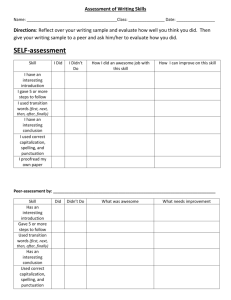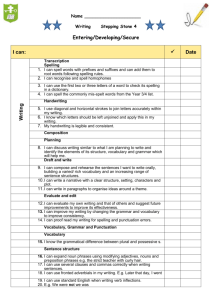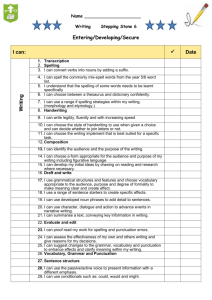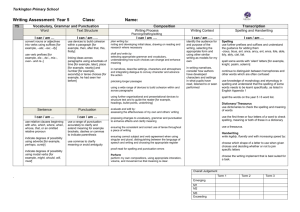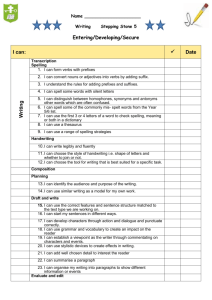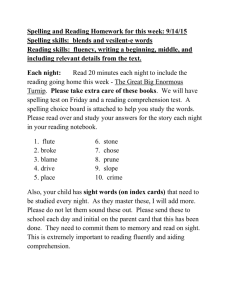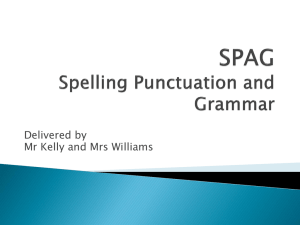Unwrapped Standard 4
advertisement
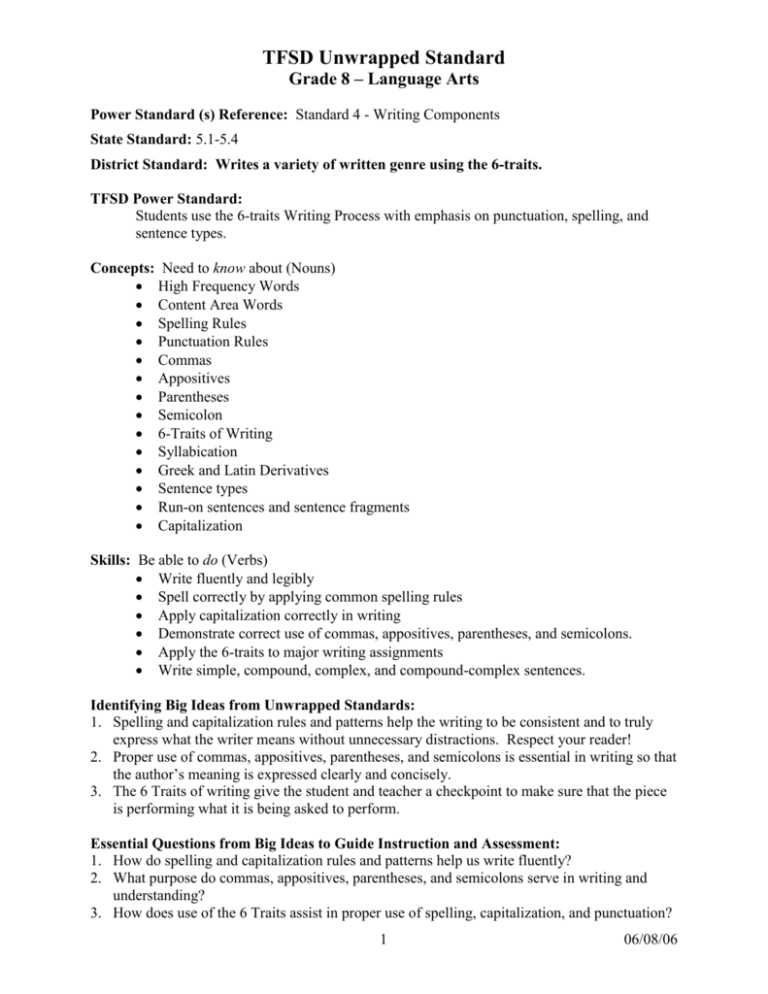
TFSD Unwrapped Standard Grade 8 – Language Arts Power Standard (s) Reference: Standard 4 - Writing Components State Standard: 5.1-5.4 District Standard: Writes a variety of written genre using the 6-traits. TFSD Power Standard: Students use the 6-traits Writing Process with emphasis on punctuation, spelling, and sentence types. Concepts: Need to know about (Nouns) High Frequency Words Content Area Words Spelling Rules Punctuation Rules Commas Appositives Parentheses Semicolon 6-Traits of Writing Syllabication Greek and Latin Derivatives Sentence types Run-on sentences and sentence fragments Capitalization Skills: Be able to do (Verbs) Write fluently and legibly Spell correctly by applying common spelling rules Apply capitalization correctly in writing Demonstrate correct use of commas, appositives, parentheses, and semicolons. Apply the 6-traits to major writing assignments Write simple, compound, complex, and compound-complex sentences. Identifying Big Ideas from Unwrapped Standards: 1. Spelling and capitalization rules and patterns help the writing to be consistent and to truly express what the writer means without unnecessary distractions. Respect your reader! 2. Proper use of commas, appositives, parentheses, and semicolons is essential in writing so that the author’s meaning is expressed clearly and concisely. 3. The 6 Traits of writing give the student and teacher a checkpoint to make sure that the piece is performing what it is being asked to perform. Essential Questions from Big Ideas to Guide Instruction and Assessment: 1. How do spelling and capitalization rules and patterns help us write fluently? 2. What purpose do commas, appositives, parentheses, and semicolons serve in writing and understanding? 3. How does use of the 6 Traits assist in proper use of spelling, capitalization, and punctuation? 1 06/08/06 Possible Topics or Context: (what you will use to teach the concepts and skills-particular unit, lessons or activities) Share examples of student writing that are basic, proficient, and advanced to analyze and score. Journal descriptions and explanations. Students self assess using 6-trait rubrics and sample paragraphs. Peer edit for specific components. DOL type activities that target specific writing components. 2 06/08/06
